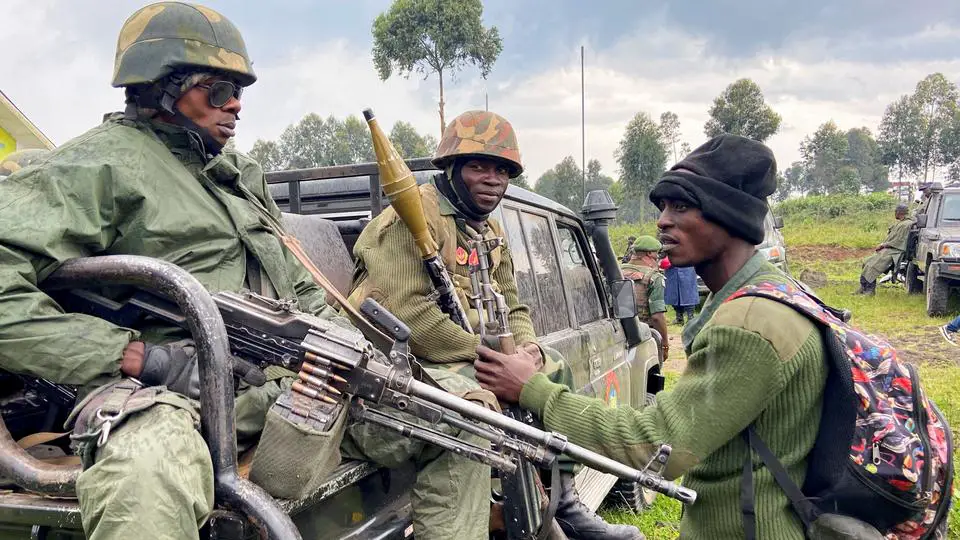Taarifa Investigative desk has learned that DRC troops launched strikes against M23 fighters hours before coming into effect of the agreed “immediate ceasefire.”
The ceasfire was set to kick into effect by both sides on Friday, November 25, but local sources reported heavy fighting was still ongoing on Friday morning in Chumba, Bishusha, Bwito chiefdom, Rutshuru in North Kivu province.
Local civil society sources said, “it was between 6 a.m. and 8 a.m. local time that heavy gunfire was heard in Chumba, located about 30km from Kitshanga”. The fighting came after the violent clashes on the evening of Thursday, November 24 around 6 p.m. in Rusekera village.
The M23 rebels now occupy the area of Tongo, and are entering the neighboring Bishusha, towards the former base of the former rebel movement, the National Congress for the Defense of the People (CNDP) in Bwiza near Kitshanga.
Tongo residents also reported to have seen heavy and numerous rebel reinforcements heading towards Bishusha, Bukombo and Kibirizi.
“Immediate ceasefire”
In Angola, Wednesday, November 23, Rwanda and DRC signed an “immediate ceasefire” agreement to put an end to fighting. This agreement specifies that ceasefire was effective from Friday, November 25 at 6 p.m. in all the territories where the fighting between the FARDC and M23 fighters is taking place.
However, a few hours after the signing of this agreement, the M23 movement declared that it is not bound by this document from Luanda since it was not at the negotiating table.
M23 movement’s spokesman Lawrence Kanyuka explains that if there are no attacks against its positions, the M23 will respect a ceasefire which he says is in force.
Regarding the withdrawal, the movement is categorical, no withdrawal as it stands. “If the Congolese government wants to negotiate, it must do so directly with us”, says the M23 spokesperson.
On the Kinshasa side, there will be no form of dialogue as long as the M23 still occupy conquered territories and should also first lay down their arms.
Humanitarian crisis
According to IPC (Integrated Food Security Classification Framework), more than 26 million people are facing acute food insecurity.
The United Nations World Food Program (WFP) has allocated U$17.5 million to assist populations in volatile eastern DRC.
“Money for families means they can afford to buy food and medicine. This is the main thing when you are uprooted by conflict, and you have lost your homes and your income,” says Peter Musoko, WFP country director.
Despite the difficult operating environment, WFP expects to reach a record 8.6 million people in the DRC this year and needs an additional U$116 million to support essential programs for the next six months.




















